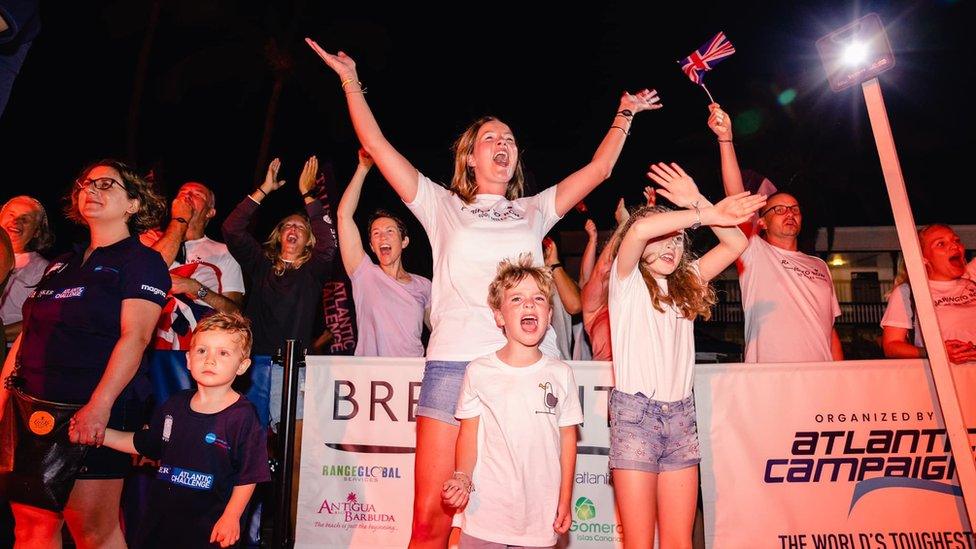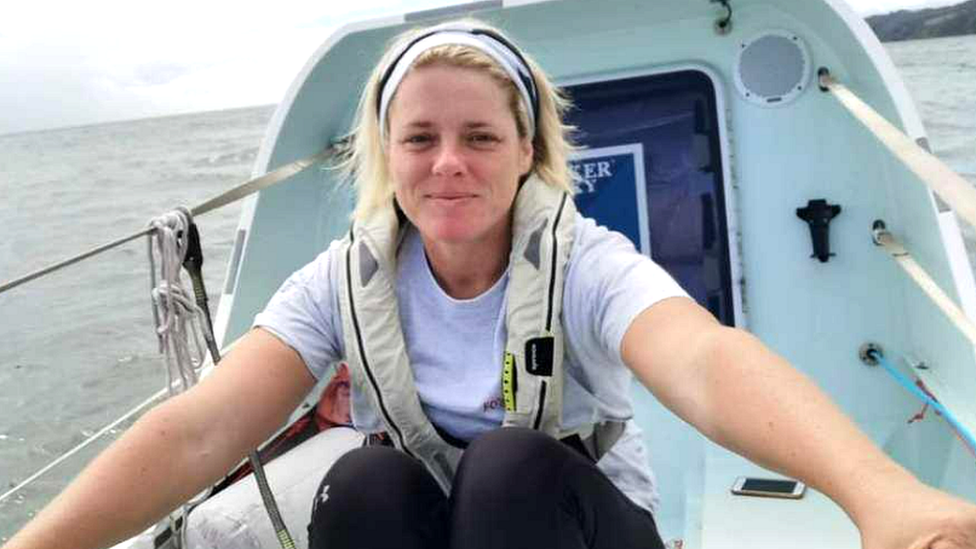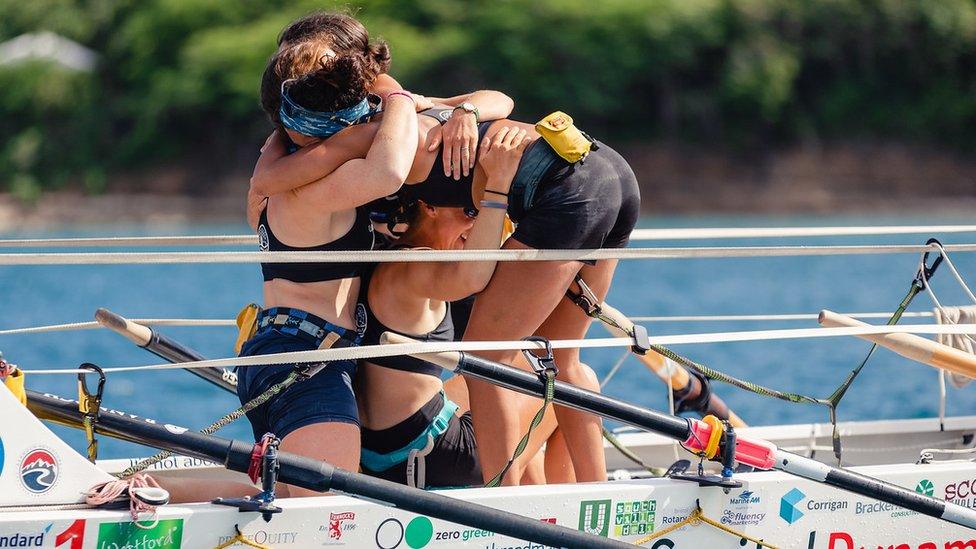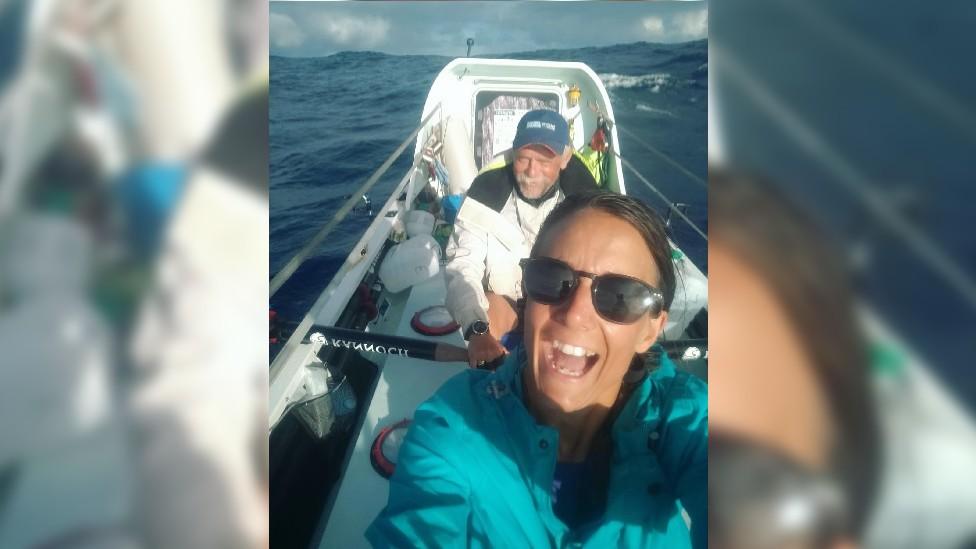Talisker Atlantic Challenge: Bristol woman rows in sisters' memory
- Published

The trio spent more than 44 days rowing across the Atlantic
A woman whose two sisters died from a rare disease has rowed across the Atlantic in aid of medical research.
Gemma Best, from Bristol, competed in a 3,000-mile race along with two friends.
When she was just 13, her sisters Jade and Jordan died from PEHO (Progressive encephalopathy with edema, hypsarrhythmia and optic atrophy).
"If we can help other families in similar situations, the difficulties and hardships of crossing the ocean will be worthwhile," said Ms Best, 43.
Along with friends Kevin Watkins, 53, and Adam Siggs, 37, Ms Best was in one of 43 boats taking part in the Talisker Whisky Atlantic Challenge - known as the world's toughest row, external.
With a team name of Raring to Row, they began the crossing from La Gomera in the Canary Islands on 12 December and arrived at the finish line in Antigua on Wednesday - 44 days, 11 hours and 39 minutes later.
They battled extreme weather conditions during the race, which continued throughout Christmas and the new year.
Incredibly rare condition
Ms Best, a mother of two and grandmother to four, became the first UK woman to complete the challenge twice, having undertaken the race in 2020.
The Raring to Row crew were raising money to fund medical research into rare diseases affecting children.
Ms Best said that when her sisters died from PEHO, a rare neurodegenerative disorder, there were only a total of five children in the UK diagnosed with it.
Jade, 2, and Jordan, aged two and a half months, both died in 1992.

Family and friends were waiting on the harbourside to greet the rowers in Antigua
"My family were very lucky to have had not only the great nursing staff, but also fantastic consultants who were willing to research the condition," said Ms Best.
"Without the help of charities such as Action Medical Research this would not be possible. Jade and Jordan had very short lives full of love and care."
Sarah Moss, director of communications at Action Medical Research, said the charity was "striving" to develop treatment and cures for families affected by rare diseases.
"Medical research provides hope that no family will have to go through the heartbreak of losing a child to a rare disease," she said.

Ms Best and her team have so far raised more than £30,000

Related topics
- Published2 February 2021

- Published28 January 2021
